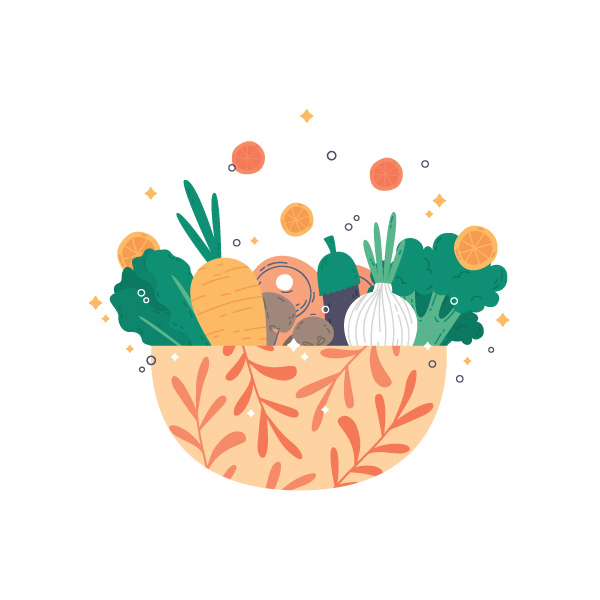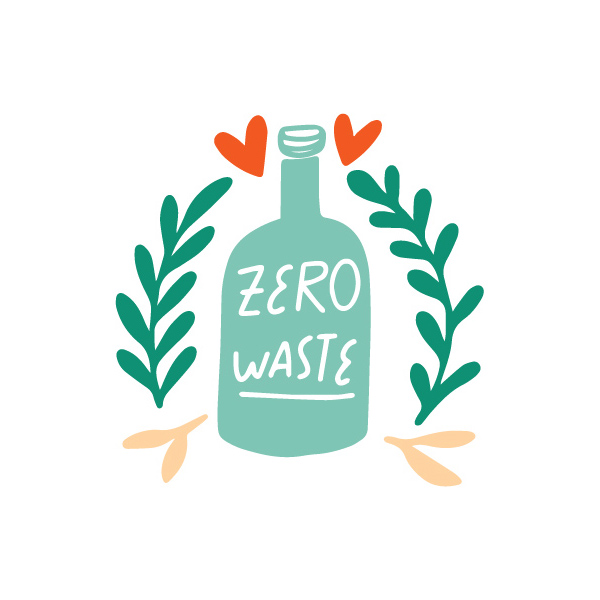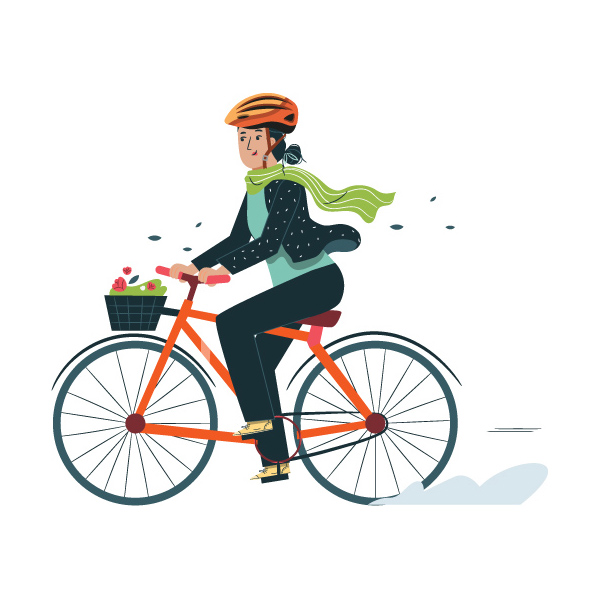

Try the following the week of SEPt 25-Oct 2, 2021


Avoiding animal products is the single biggest way to reduce your environmental impact on the planet.


Going plastic-free might be daunting at first but there are many things you can do. Reduce, reuse and recycle.


Leave your car at home and walk or ride a bicycle. Got a longer distance to cover? Try public transport.

Join our WEEKLONG CHALLENGE ON sept 26-oct 2, 2021

Avoid eating animals or animal products such as beef, chicken, pork, turkey, fish, cheese, milk, eggs and honey.
Try some new recipes that don’t contain animal products; we’ve put a big selection together right here.
Try some meat, cheese and milk alternatives for your staple foods like cereal with milk.
Discover new treats like dark chocolate or vegan ice cream.

Avoid producing plastic waste.
Bring a reusable water bottle with you and fill it up at public water fountains instead of buying bottled water.
Use reusable fabric totes when you go grocery shopping.
Bring an insulated coffee mug and have your local coffee place fill them up for you (if Covid-19 protocols permit it).
Try buying products in bulk and putting them multi-use containers or jars instead of single-use bags.

Avoid using a car.
Try walking to places that are close to your house.
Ride your bicycle to get to places that are a bit further away. If you don’t own one, maybe you can borrow a friend’s bicycle.
Use public transport if you have places to go to that are further away.
If you must use a car try car-pooling with friends or family to avoid excess vehicles.

How much you can save if you join our challenge
IF YOU GO PLANT-BASED FOR A WEEK, YOU CAN SAVE:
21 kilos of CO2e
21,000 litres of water
510 Trees
IF ALL OF WATERLOO REGION GOES PLANT-BASED FOR 7 DAYS WE CAN SAVE:
12.25 million kilos of CO2e
12.3 million litres of water
175,000-490,000 Trees
IF YOU GO PLASTIC-FREE FOR JUST 1 WEEK, YOU CAN SAVE:
18 bottles
12 plastic bags
28 straws
11 single-use cups
IF ALL OF WATERLOO REGION WENT PLASTIC-FREE FOR 7 DAYS, WE CAN SAVE:
12.25 million bottles
7.87 million plastic bags
8.75 million straws
8.75 million single-use cups
IF YOU DITCH THE CAR FOR 2 DAYS WE CAN SAVE:
18 kilos of CO2
IF ALL OF WATERLOO REGION WENT CAR-FREE FOR 2 DAYS WE CAN SAVE:
11 million kilos of CO2

GOING PLANT-BASED: REDUCING GREENHOUSE GAS EMISSIONS
Researchers from Oxford and Otaga Universities found that “meat lovers”, “medium meat eaters”, and “low meat eaters” were responsible for an estimated 7.19, 5.63, and 4.67 kilos of CO2 equivalent (CO2e) respectively, and that vegans were responsible for 2.89 kilos of CO2e daily.
We added the three numbers for the meat eaters (7.19 + 5.63, + 4.67) to get a total of 17.49 and divided that by 3 (17.49/3) to come up with an average of 5.83 kilos of CO2e per meat eater.
We subtracted the vegans’ 2.89 CO2e from the meat eaters average of 5.83 to get 2.94 kilos of CO2e savings per day on a vegan diet. We then multiplied 2.94 kilos by 2 for the two day challenge, and got 5.88 kilos.
Then we multiplied 5.88 kilos of CO2e by 617,870 people, the most recent estimate by the Region of Waterloo for the population of the region in 2019. And we came up with a savings of 3,633,075.6 kilos of CO2e over 2 days of the Region going plant-based.
GOING PLANT-BASED: SAVING WATER
It’s estimated that people who eat meat are responsible for the use of 5,000 litres per day of water, and non-meat eaters for 1,000 to 2,000 liters of water per day.
So a meat eater would save between 3,000 and 4,000 liters of water every day they went meat-free.
We multiplied that by 2 days, so found that there was a savings of between 6,000 and 8,000 liters of water for the two days.
Then we took the lower end of the range, and multiplied the population of the region, 617,870 people by 6,000 litres of water for 2 days, and found a savings of 3,707,220,000 liters … so more than three and a half billion liters of water that could be saved over one weekend.
GOING PLANT-BASED: SAVING TREES
The United Nations says that 13 million hectares of forest are cleared every year for animal grazing, and crops to feed farmed animals.
There are somewhere between 1000 and 2500 trees in a hectare, so if we take the low end of that, that means 13 billion trees are cleared every year due to animal agriculture.
There are around 7,800,000 humans currently on the planet, so if we divide 13 billion by the human population, we see that at least 1.67 trees per year are killed for each one of us. If we divide that by 365 days, 0.00456 trees are killed per day per human for animal agriculture. If we multiply that by 2, we get 0.00912.
But if the entire Region of Waterloo went plant-based for the weekend, and we multiplied our individual tree savings by 617,870 humans, our community could save 5,634.9744. And if we went with the upper end, and assumed there were 2,500 trees in a hectare, and multiplied 5,634.97 trees by 2.5, we could save 14,087.425 trees. In just one weekend!!!
ELIMINATING WASTE: PLASTIC BOTTLES
The average Canadian uses 1,025 plastic bottles per year. So we took 1,025 bottles, divided it by 365 days in the year, and found that we each use 2.808 bottles per day. We multiplied the 2.808 by 2 to get 5.616 as the average number of bottles one person would save if they refused plastic bottles over the two-day weekend.
Then we took those 5.616 plastic bottles that would be saved by one person, and multiplied that number by the population of Waterloo Region, 617,870 and found that we would save an incredible 3,469,957.92 plastic bottles if we refused them for just one weekend.
ELIMINATING WASTE: PLASTIC BAGS
The average Canadian uses 700 plastic bags per year. So we took 700 bags, divided it by the 365 days in the year, and found that we each use 1.918 per day. We multiplied the 1.918 by 2 to get 3.836 as the average number of bags one person would save if they refused plastic bags over the two-day weekend.
Then we took those 3.836 plastic bags that would be saved by one person over the weekend, and multiplied that number by the population of Waterloo Region, 617,870, and found that we would save an amazing 2,370,149.32 plastic bags if we all refused them for just one weekend.
ELIMINATING WASTE: STRAWS
The average Canadian uses 730 plastic straws per year. So we took 730 straws, divided it by the 365 days in the year, and found that we each use 2 straws per day. We multiplied those 2 straws by 2 to get 4 as the average number of straws one person would save if they refused plastic straws over the two-day weekend.
Then we took those 4 plastic straws that would be saved by one person over the weekend, and multiplied that number by the population of Waterloo Region, 617,870, and found that we would save 2,471,480 plastic straws if we refused them for just one weekend.
ELIMINATING WASTE: SINGLE-USE CUPS
The average Canadian uses 720 single-use cups per year. So we divided 720 cups by 365 days and found that the average Canadian uses 1.973 disposable cups per day. We multiplied that 1.973 cups times 2, for the two days of the Festival, and found that you could save 3.946 cups over the weekend.
Then we took those 3.946 cups and multiplied them by the 617,870 people living in Waterloo Region, and came up with 2,438115.02 single use cups that could be saved from landfill if we avoided them.
GOING CAR-FREE: REDUCING GREENHOUSE GAS EMISSIONS
The average Canadian car emits 206 grams of CO2 per kilometre. The average mileage per year in Ontario is 16,000 km per person, according to Natural Resources Canada.
We divided that by 365 days, and got an average of 43.8356 km driven per day per person in Ontario.
We then multiplied 43.8356 km/day by 206 g of CO2 per kilometer, and got 9,030 grams or 9.03 kg of CO2 per day. Then we multiplied the 9.03kg of CO2 by the 2 days of the festival, and came up with the 18.06 kilograms of personal CO2 savings.
Multiplied by the number of people in the Region of Waterloo, 617,870, we could save a whopping 11,158,873.2 kg, or 11,158 metric tons of carbon.


